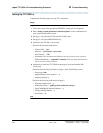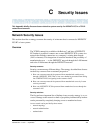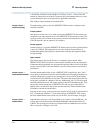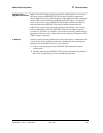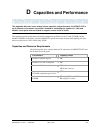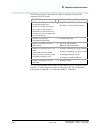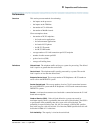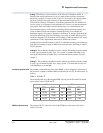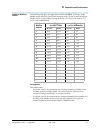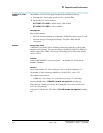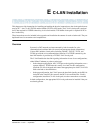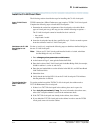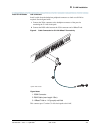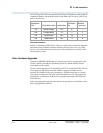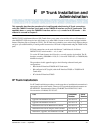
D Capacities and Performance
Administration for Network Connectivity
CID: 77730 555-233-504 — Issue 1 — April 2000
410
Erlang. The Erlang is a unit of measure of the intensity of telephone traffic. It
measures the average utilization of a set of system resources during a given time
period. For example, if a server (trunk) is busy for 30 seconds over a measurement
period of 2 minutes, the traffic intensity for that measurement period is 0.25
(30sec/120sec) Erlangs. An intensity of one Erlang represents the full utilization of
one call server, or an average of 1/n
th utilization of n servers, over the measurement
time period. Since the Erlang is time divided by time, it is a dimensionless unit.
The maximum capacity of one trunk is one Erlang and the maximum capacity of a
group of trunks is equal to the number of trunks in Erlangs. For example, the
maximum capacity of a group of 30 trunks is 30 Erlangs. If, during a given hour the
utilization of the trunk group was 10 Erlangs, on average 10 trunks were busy. This
could have happened for 10 one-hour calls (unlikely) or 600 one-minute calls, or any
combination of calls and durations that result in 36,000 call-seconds.
Another measure of traffic intensity is the CCS, or hundred (century) call-seconds per
hour. Since one Erlang is equal to 3600 call-seconds per hour, one Erlang is equal to
36 CCS per hour.
Erlang B. The probability distribution used to estimate the number of trunks needed
to carry a given amount of traffic for a “loss system.” It assumes that when a call
arriving at random finds all trunks busy, it vanishes and doesn’t return (“lost calls
cleared”).
Erlang C. The probability distribution used to estimate the number of trunks needed
to carry a given amount of traffic for a “delay system.” It assumes that all calls will
wait indefinitely to get through.
Processor performance The number of thousands busy-hour calls (KBHC) can be estimated as a function of
the processor occupancy estimate (POE) and the time per call (T), in milliseconds, as
follows:
KBHC
≤
36*POE / T
The following table gives the estimated BHC capacity for the G3r and G3si models
given various values of POE and T.
TDM bus performance The impact of H.323 voice-only calls on the TDM bus is the same as for circuit
switch voice calls.
G3r G3si
T(ms)
POE =
57%
POE =
65%
T(ms)
POE =
52%
POE =
60%
100 20,500 23,400 200 9,400 10,800
150 13,700 15,600 300 6,200 7,200
200 10,300 11,700 400 4,700 5,400



